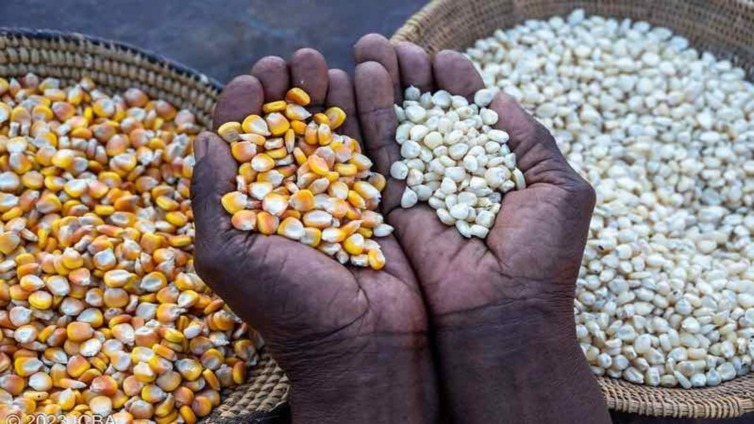The Ministry of Foreign Affairs has alerted Ghanaian traders and businesses to Burkina Faso’s continued ban on the export of cereals and white beans, urging full compliance to avoid sanctions.
In a statement issued on Tuesday, February 25, the Ministry cited official communications from Burkina Faso - joint communiqués No. 023-0017 dated December 19, 2023, and No. 024-0017 dated November 13, 2024 - reiterating the ban on the export of key staples including rice, millet, maize, sorghum, and cowpeas.
The restriction aims to safeguard Burkina Faso’s domestic food security amid regional concerns over grain shortages and rising prices.
“Ghanaian traders and businesses involved in importing these commodities from Burkina Faso are advised to take note of this directive and comply accordingly to avoid any sanctions or confiscation of goods,” the Ministry’s statement highlighted.
Burkina Faso initially announced the export restrictions in December 2023, citing concerns over food sufficiency amid challenging climatic conditions affecting agricultural output.
The ban has since been extended, as reaffirmed by the November 2024 communique, highlighting the country’s determination to stabilize local food supplies.
Ghana, a significant importer of cereals from its northern neighbour, could face short-term supply disruptions and potential price hikes in local markets as a result of the ban.
Market analysts warn that the restriction could have ripple effects on Ghana’s food security, particularly for industries reliant on imported grains and beans.
Local traders, especially those operating along the border regions, have been urged to seek alternative sources or adjust supply chains to mitigate the impact.
“We understand the implications for Ghanaian businesses, but compliance is crucial to maintaining smooth bilateral trade relations,” the Ministry added.
The Foreign Ministry further encouraged affected stakeholders to stay updated on developments and liaise with relevant authorities for guidance.
Ghana’s diplomatic missions in Ouagadougou and border agencies are expected to monitor the situation closely and assist traders where necessary.
With the agricultural sector facing increasing challenges across West Africa, regional cooperation and contingency planning are becoming more critical.
The Ministry reassured the public that it will continue to engage with its Burkinabe counterparts to explore possible solutions that minimise economic disruptions while respecting Burkina Faso’s domestic priorities.
For now, Ghanaian importers are advised to exercise caution, adhere to trade regulations, and explore alternative sourcing options to ensure steady supply and price stability of these essential commodities.
Latest Stories
-
Joy Prime to premiere “PrimeTime” with George Quaye on June 18
1 hour -
Israel carrying out ‘extensive strikes’ across Iran as Tehran warns ‘more severe’ response coming
2 hours -
Government suspends GH₵1 fuel levy indefinitely, new date to be announced later
2 hours -
Democratic state politician and husband shot dead in targeted attack
2 hours -
15 killed by Israeli fire near Gaza aid site, hospitals say
2 hours -
Ashaiman NDC in shock as chairman Shaddad Jallo dies
3 hours -
Mahama converts Daboya College into public Teacher Training Institution, revives Doli project
3 hours -
Prioritise prudence, not foreign debt – Deputy Ahafo Regional Imam implores African leaders
3 hours -
Mahama promises STEM School and TVET Centre for Savannah Region
3 hours -
Mahama announces new public university for Savannah Region
3 hours -
Ahiagbah demands Health Minister’s dismissal over handling of nurses’ strike
3 hours -
Mahama’s clemency for radio stations was pure gimmick – Egyapa Mercer
3 hours -
GRA postpones implementation of Energy Sector Levy
3 hours -
GES urges supervisors and invigilators to uphold integrity and honesty
6 hours -
Don’t let your parents down – Omane Boamah to Pope John SHS students
6 hours

